Presidential elections in Taiwan
The election of the President and Vice President of the Republic of China (Chinese: 中華民國總統、副總統選舉) is a universal direct election through secret vote by the Taiwanese citizens. The most recent election took place on January 11, 2020.
- The Presidential and Vice Presidential Election and Recall Act [1] states that a candidate for President or Vice President must be an ROC citizen, at least 40 years old, and a resident of Taiwan for a period of no less than 15 years with physical presence for not less than 6 consecutive months. (The citizenship refers to household registration in Taiwan)
- The following persons shall not be registered as candidates for the President:
- Military personnel
- Election officials
- People who hold foreign nationality or who hold residency of the People's Republic of China
- People who restored their nationality or acquired nationality by naturalization
- The President and Vice President are nominated on a joint ticket. Political parties which have gained at least 5% of the votes at the last presidential or legislature election may nominate a set of candidates directly. For example, for the 2012 elections, only the Kuomintang and Democratic Progressive Party were qualified to nominate candidates through this rule. Alternatively, candidates may be nominated by a petition signed by eligible voters numbering no less than 1.5% of electors at the last legislature election. (This equals 252,848 signatures for the 2012 election.)[1]
List of presidential elections in Taiwan

Comparison of the vote percentages in the direct presidential elections.
Other independents
Maps of results by party
.svg.png) 1996
1996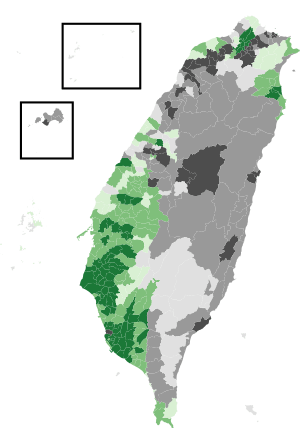 2000
2000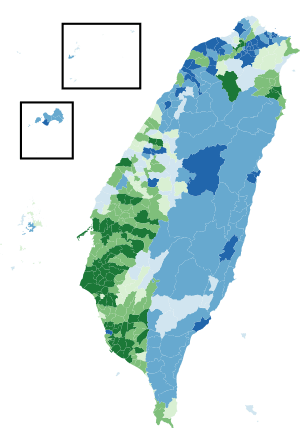 2004
2004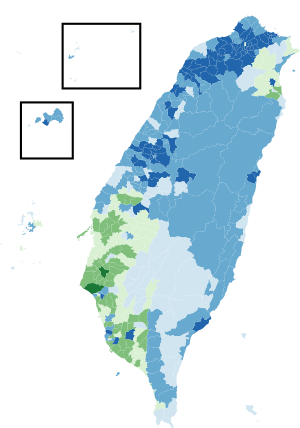 2008
2008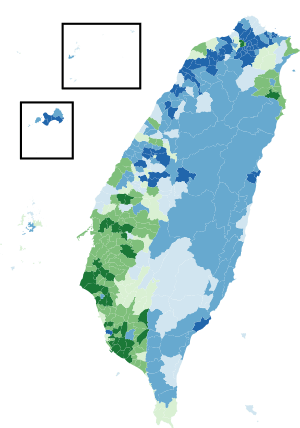 2012
2012 2016
2016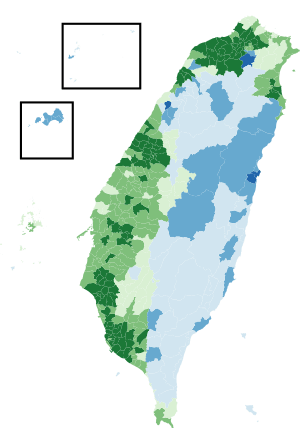 2020
2020
gollark: As I said, perhaps ICBM for purposes.
gollark: \🐝
gollark: So we could make an automatic intercontinental ballistic missile system.
gollark: Oh neat, there is an OC addon for ICBM Classic.
gollark: Well, they can... generate ores in your dimension?
See also
- Elections in Taiwan
- President of the Republic of China
- List of Presidents of the Republic of China
- Vice President of the Republic of China
- List of Vice Presidents of the Republic of China
- Right of expatriates to vote in their country of origin#Taiwan
This article is issued from Wikipedia. The text is licensed under Creative Commons - Attribution - Sharealike. Additional terms may apply for the media files.